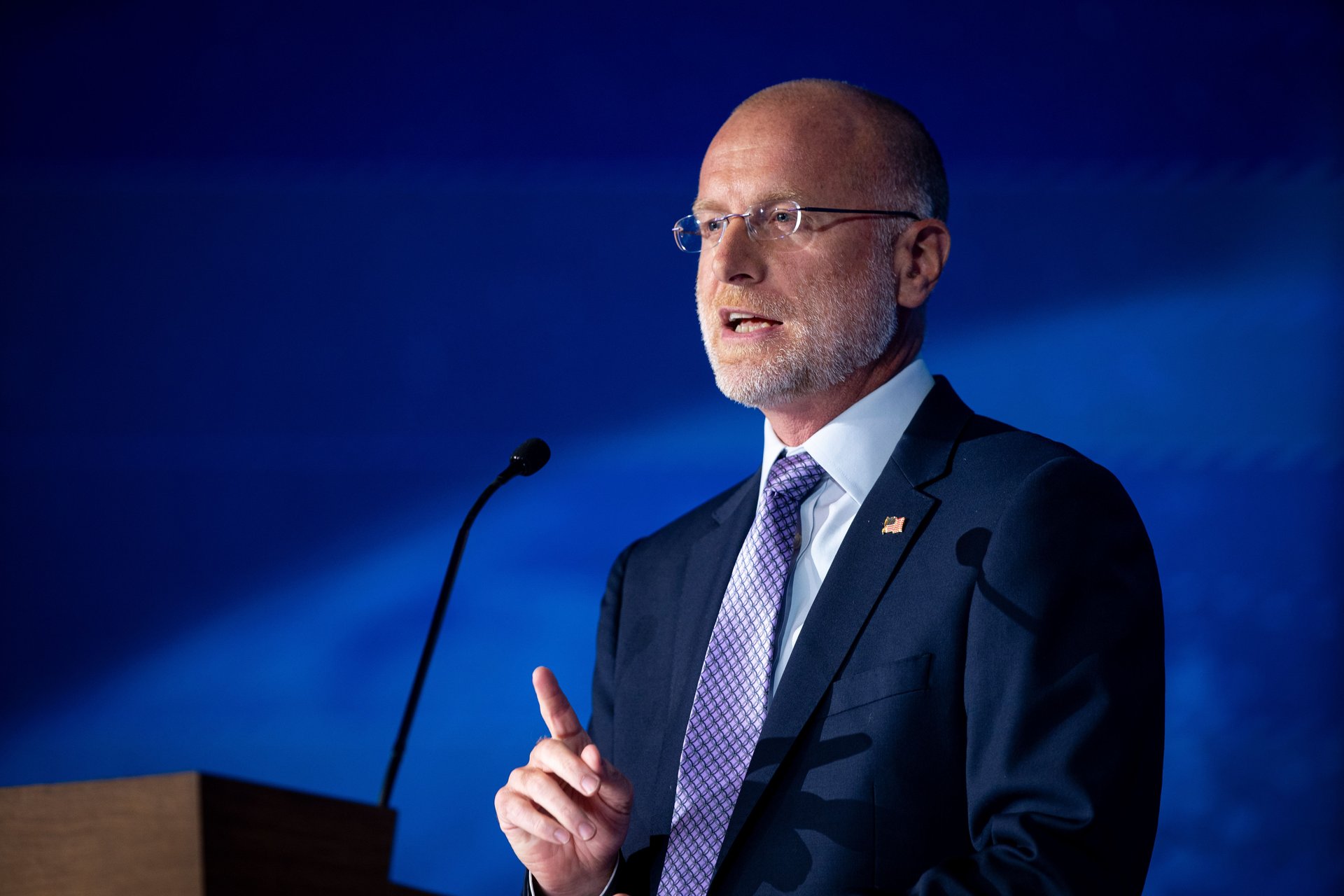Trump's FCC head criticized censorship. Then he threatened Disney and ABC
Before raising the possibility of punitive action, Brendan Carr castigated anything that resembled government censorship. Not just once. Four times, at least

Brendan Carr, commissioner at the Federal Communications Commission (FCC), speaks during the US Chamber of Commerce's Global Aerospace Summit in Washington, DC. (Al Drago/Bloomberg via Getty Images)
Before raising the possibility of punitive action against Disney and ABC, Brendan Carr castigated anything that resembled government censorship. Not just once. Four times, at least.
Suggested Reading
"Should the government censor speech it doesn’t like? Of course not," Carr said in 2019, while serving as a Republican member of the FCC. "The FCC does not have a roving mandate to police speech in the name of the ‘public interest.'”
Related Content
Then a year later, Carr described political satire "as one of the oldest and most important forms of free speech."
"It challenges those in power while using humor to draw more people in to the discussion," Carr said in a February 2020 social media post. "That’s why people in influential positions have always targeted it for censorship."
Carr's past comments garnered fresh attention after the FCC chief suggested on Wednesday that the communications regulator could revoke the broadcasting licenses of ABC affiliates over remarks from late-night comedian Jimmy Kimmel. More broadly, it underscored how the Trump administration has been newly emboldened to use government power to accomplish its goals, and it may not flinch at bluntly wielding it to bring corporate America in line.
Earlier this week, Kimmel criticized Republican reactions in the wake of the assassination of conservative commentator Charlie Kirk. The host of Jimmy Kimmel Live! quickly garnered a response from Carr. “This is a very, very serious issue right now for Disney,” Carr said on a conservative podcast. “We can do this the easy way or the hard way. These companies can find ways to take action on Kimmel or there is going to be additional work for the FCC ahead.”
ABC then announced it was yanking Kimmel's program indefinitely without explaining its decision.
The FCC didn't immediately respond to a request for comment. In a CNBC interview, Carr maintained that his past posts were consistent with the actions he'd taken as FCC chair.
"I've been very consistent. When it comes to the internet, we want wide-open, robust debate, and there's no public interest standard there," Carr said. "There's no licensing obligation there. But again, broadcast TV is simply different."
He went on: "If they want to keep access to those valuable airwaves. I've been clear. We're reinvigorating the FCC's enforcement of public interest, and it's a good thing."
During the second Trump administration, the FCC under Carr has stepped up its oversight of major deals involving media and telecommunications giants. Carr has prodded Comcast and Verizon into unwinding their diversity, equity, and inclusion policies and argued they violated civil rights laws. Verizon followed up with the FCC in May, stating that it had ended its DEI practices.
A day later, the FCC approved a $20 billion deal for Verizon to acquire Frontier, a broadband provider. Carr's also launched separate probes into CBS and NBC News.
Shortly after FCC chair pressured ABC, Nexstar — an ABC affiliate owner – said it was pre-empting Kimmel's late-night program "for the foreseeable future." The company intends to purchase a rival company in an agreement that must be approved by the FCC. Carr later thanked Nexstar for "doing the right thing" and encouraged other broadcasters to follow its lead.
Carr has argued that he can hold back from renewing broadcast licenses for TV networks that aren't serving the public interest. Critics, though, argue that the Trump administration is stifling free speech. Perhaps the most prominent critic on Thursday was former President Barack Obama.
"After years of complaining about cancel culture, the current administration has taken it to a new and dangerous level by routinely threatening regulatory action against media companies unless they muzzle or fire reporters and commentators it doesn’t like," Obama wrote in a social media post, without naming Trump.
